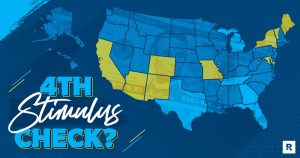Key takeaways
- Debt consolidation loans may not be the best option for every financial situation.
- Balance transfer credit cards, home equity loans and home equity lines of credit (HELOCs) are ways to consolidate that may be less expensive in some cases.
- Debt settlement and bankruptcy are costly options both in terms of money and financial health, and should be carefully researched.
Debt consolidation loans, personal loans that combine multiple debts into a single account, are issued based on creditworthiness. That means they aren’t the best choice for everyone. Luckily, there are other debt consolidation options available that don’t involve this type of loan.
Debt consolidation loan alternatives
Because debt consolidation loans are unsecured personal loans, lenders may have strict eligibility requirements. This could make it difficult for those with low credit scores to qualify or get the amount they need. If you can’t prequalify for a good offer, here’s how to consolidate debt without a loan.
1. Budget adjustment
Before applying for a debt consolidation loan, assess whether the issue can be resolved with a few minor tweaks to your budget. These include:
- Getting rid of subscriptions you no longer use or sharing accounts.
- Cutting out or cutting back on unnecessary spending.
- Looking for cheaper car insurance, internet, home insurance or cell phone plans.
- Swapping name brands for the store brand when shopping.
Although these may seem like small steps, they could free up cash that can be used toward paying off debt.
- Best for: Tackling small debts.
- Reason: Cutting a few expenses here and there likely won’t free up more than a couple hundred dollars a month.
2. Balance transfer credit card
A balance transfer card allows you to combine debts from other credit cards — usually credit cards from other companies only — at a temporary 0 percent interest rate.
This low promotional rate period typically lasts from 12 to 18 months, though a few cards may offer up to 21 months. Only those with good to excellent credit are likely to be approved.
Once the introductory period ends, you’ll be responsible for paying the card’s standard interest rate on the remaining balance. Additionally, most cards will charge you a balance transfer fee on the total amount you transfer, typically from 2 to 5 percent.
- Best for: Borrowers with good-to-excellent credit looking to pay off credit card debt.
- Reason: A balance transfer credit card is good for those who are mainly struggling with credit card debt, as you will be able to consolidate multiple of these with this approach. Balance transfer cards are also a smart choice for disciplined consumers who will not get into deeper debt with a new credit card.
3. Home equity loan or HELOC
Home equity loans and home equity lines of credit (HELOCs) allow you to borrow against the equity in your home. While a home equity loan has fixed monthly payments at a fixed interest rate, a HELOC works like a credit card and has a variable interest rate. Both can be used to consolidate high-interest debt, but you’ll risk losing your home if you can’t pay them back.
Most home equity lenders require you to have at least 20 percent equity in your home to qualify. Compared with debt consolidation loans, home equity loans and HELOCs often have longer repayment periods, larger loan amounts and lower interest rates.
- Best for: Budget-minded homeowners.
- Reason: Home equity loans tend to be best for borrowers seeking to cover significant costs and who know exactly how much money is required. HELOCs are a better option if you need flexibility in the amount of money you’re borrowing.
4. Cash-out refinance
A cash-out refinance replaces your existing mortgage with a brand-new one that’s larger than your current outstanding balance. You will need equity in your home for this approach. You can withdraw the difference between the two balances and use it to improve your home or consolidate debt.
As with using a home equity loan or HELOC, you’ll risk losing your home if you can’t repay your new loan.
- Best for: Borrowers with less-than-perfect credit who own a home.
- Reason: Borrowers with fair or poor credit may have a better chance of getting approved with more favorable terms for a cash-out refinance than some of the other alternatives to debt consolidation loans. However, due to process’s complexity, this approach is best for those with a significant amount of debt.
5. Debt settlement
Debt settlement is when you negotiate with your lender to pay a lower amount than what’s owed to satisfy the debt. You can negotiate with the debtor yourself or pay a fee to a debt relief company or lawyer to negotiate on your behalf. Be warned: Not all creditors will engage with a debt settlement company.
This strategy is likely to damage your credit score. Most lenders won’t renegotiate your debt unless you’re significantly behind on payments. The debt settlement company may tell you to stop making payments so your debts are sent to collections.
If you successfully negotiate a settlement — which isn’t a guarantee — the settled debt will be marked as such on your credit report. It will stay there for seven years and may make it difficult for you to qualify for new credit.
- Best for: Those with $10,000 or more worth of debt, struggling with monthly payments.
- Reason: Debt settlement will impact your credit negatively for several years. Debt relief companies also charge fees of between 15 and 25 percent of the debt enrolled, which may cut your savings. There’s also no guarantee a settlement will be negotiated, so you could be liable for late fees and additional interest. That said, if you’re swamped in debt, and the other alternative is bankruptcy, then this may be something to explore.
6. Debt management plan
Credit counseling agencies offer debt management plans. They involve working closely with a counselor, who will evaluate your debt and the best approach to tackle it. Typically, the counselor will contact your creditors in an attempt to make your debt more manageable. They may be able to settle some accounts or lower your interest rate or monthly payment.
You’ll make monthly payments to an account created by the credit counseling agency, and they will pay your creditors. Additionally, you will be provided with tools to help you stay out of debt.
- Best for: Those with overwhelming debt looking for an alternative to debt settlement.
- Reason: Just like debt settlement, debt management plans are designed for consumers who are really struggling with their debts. Although these plans can also impact your credit, they are a cheaper and less damaging alternative to debt settlement.
7. Bankruptcy
Filing for bankruptcy involves going to a federal court to discharge your debts or reorganizing them to give you time to pay them off. That said, some debts, like federal student loans and tax debt, are incredibly difficult to discharge.
Before you choose this alternative, remember that your credit score will suffer a major blow that can take years to recover.
- Best for: Those who have exhausted all other options.
- Reason: If you want a fresh start, bankruptcy may make sense. However, if you use this approach, it’s best to commit to paying your bills on time moving forward, establishing a budget and avoiding the habits that got you into significant debt. These steps can help you recover from bankruptcy instead of struggling again.
Why debt consolidation might not be the best strategy
A debt consolidation loan can simplify debt repayment and even help you save money in the long run. But for it to be effective, you must identify and address the financial habits that led to the situation in the first place. Otherwise, you will be moving debt from one place to another — not solving the issue.
This could worsen your financial situation by sinking you deeper into debt if unhealthy spending continues.
If you have poor credit, consolidation options like bad credit loans might not be the best approach either. That’s because most lenders charge higher interest rates to those with imperfect credit to mitigate risk. This, combined with origination fees, can make these costly, defeating the purpose of making debt more manageable.
The bottom line
A debt consolidation loan can make sense financially if you can secure a lower interest rate. In some cases, choosing an alternative route can be a better choice.
If you need to know how to consolidate debt without a loan, consider all your options. Weigh factors like eligibility requirements, interest rates, fees and repayment terms. Additionally, consider the risks and trade-offs of each alternative and calculate how much you’ll save before proceeding.
Read the full article here










